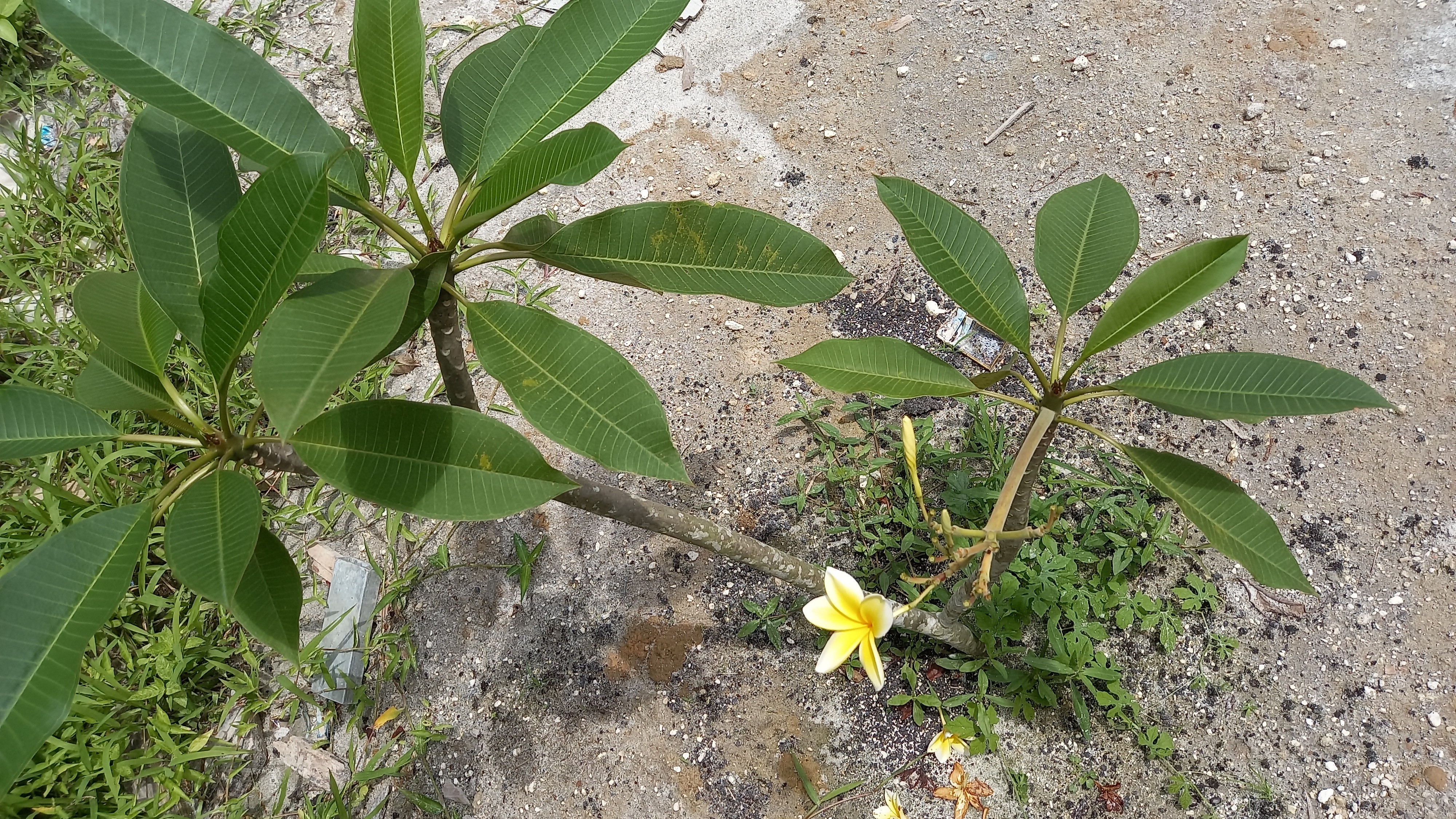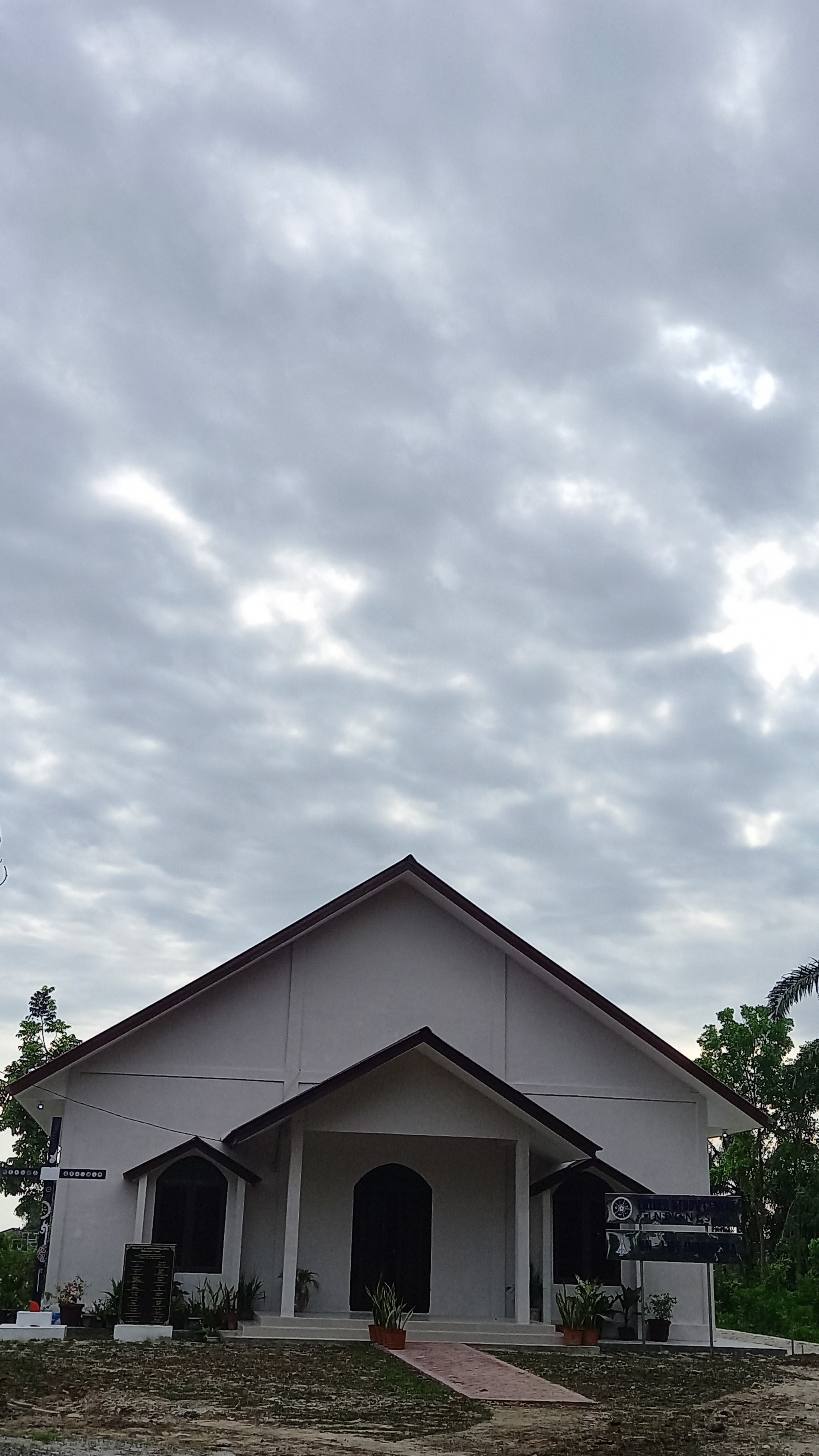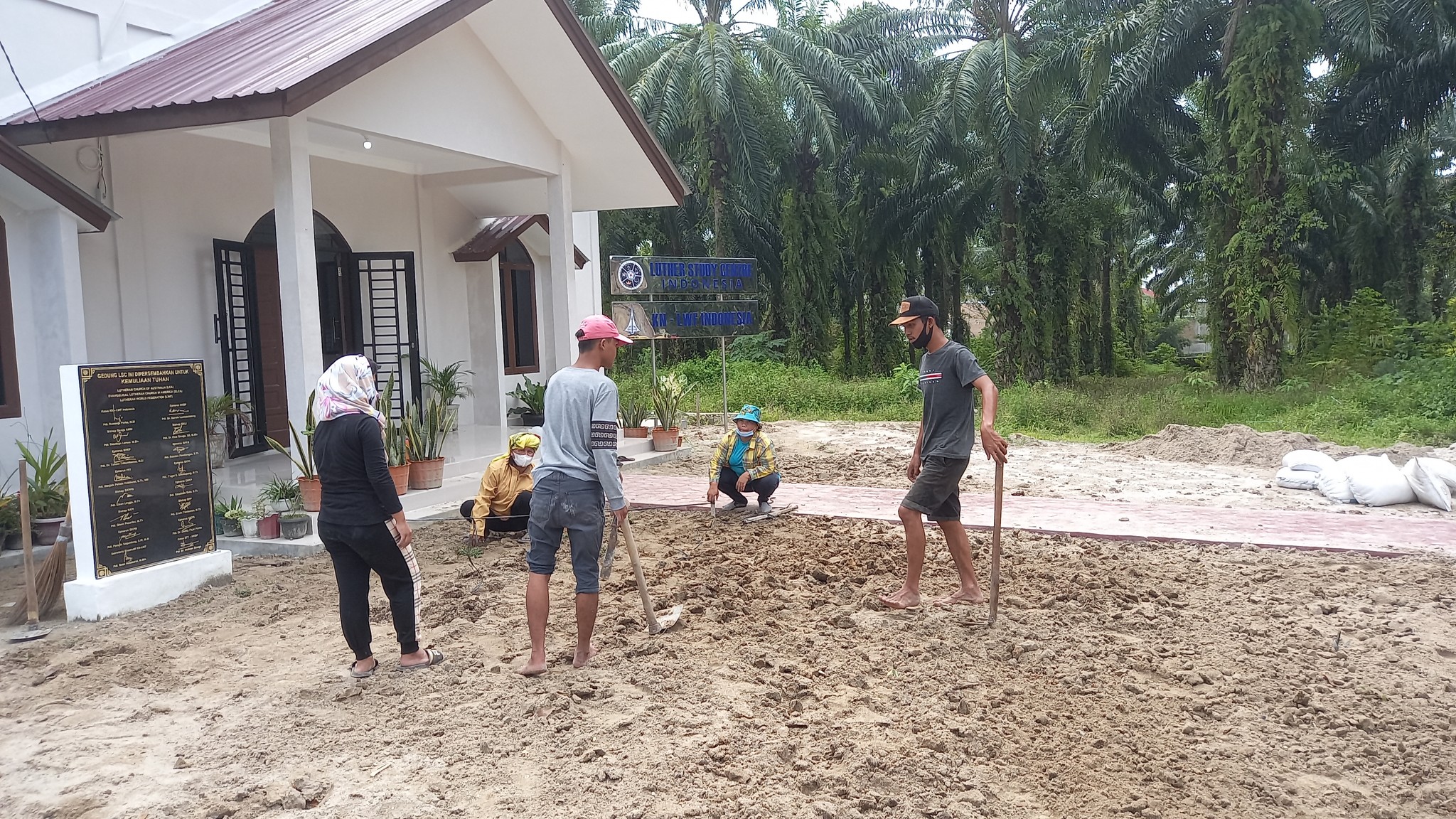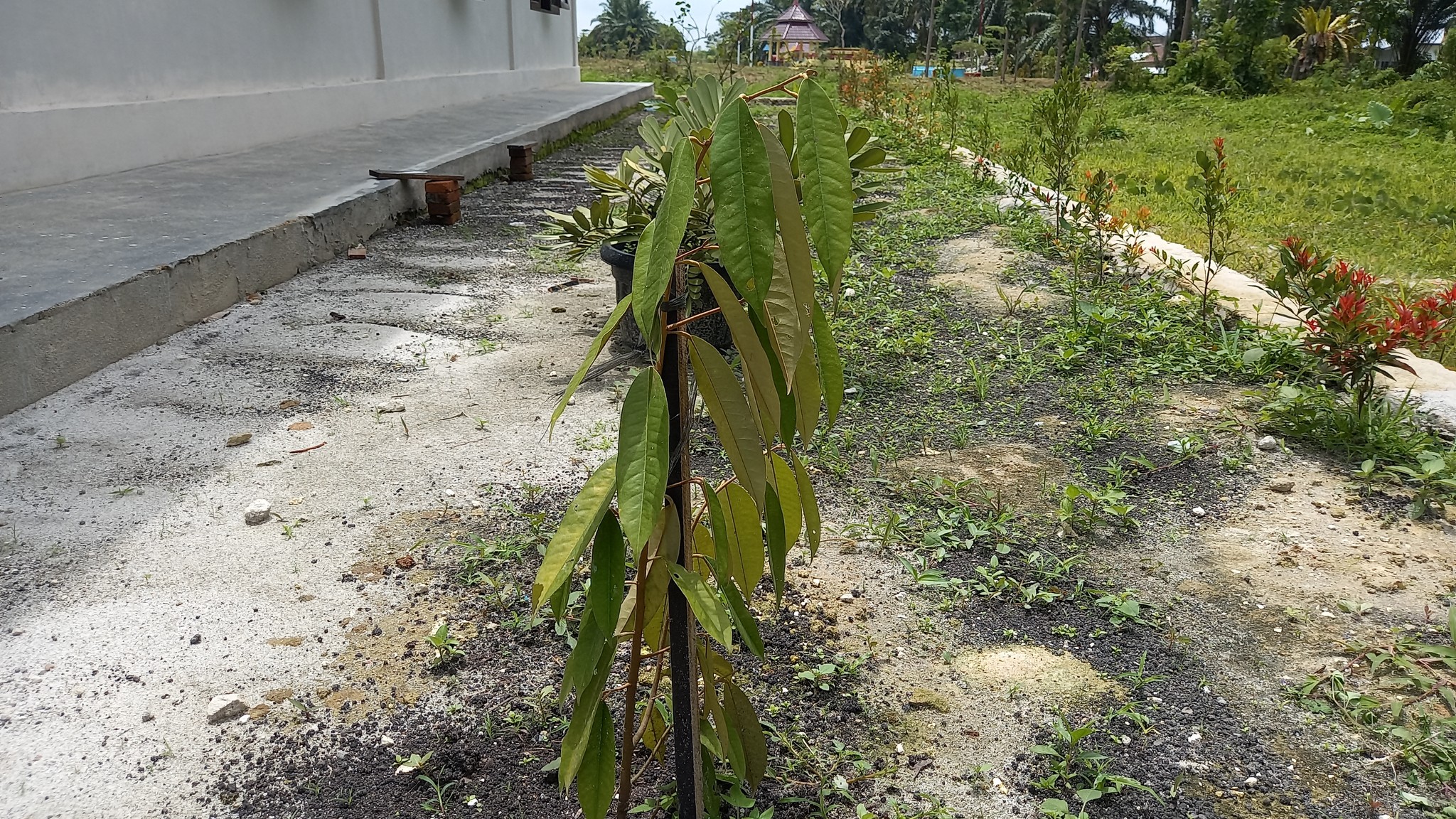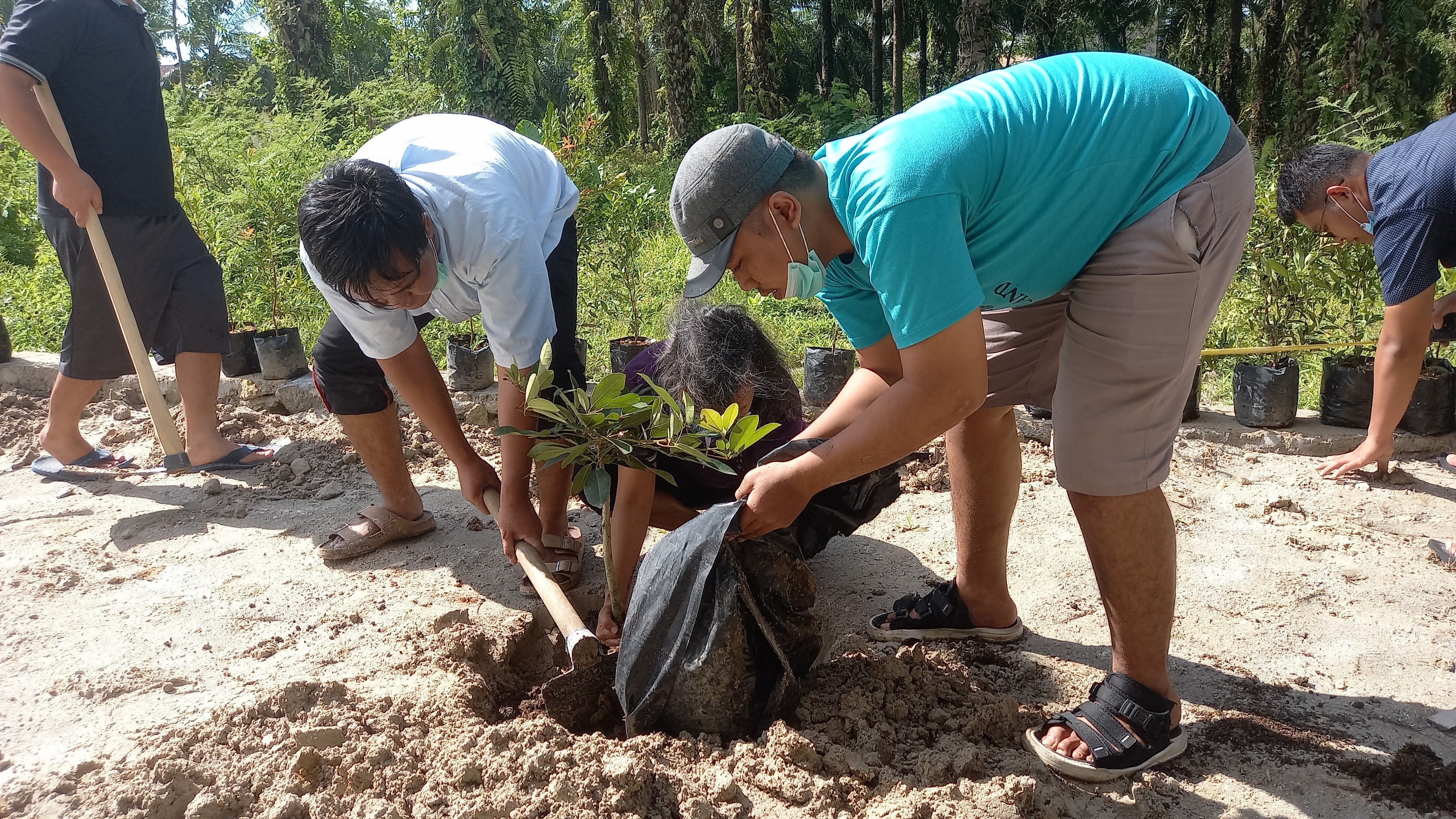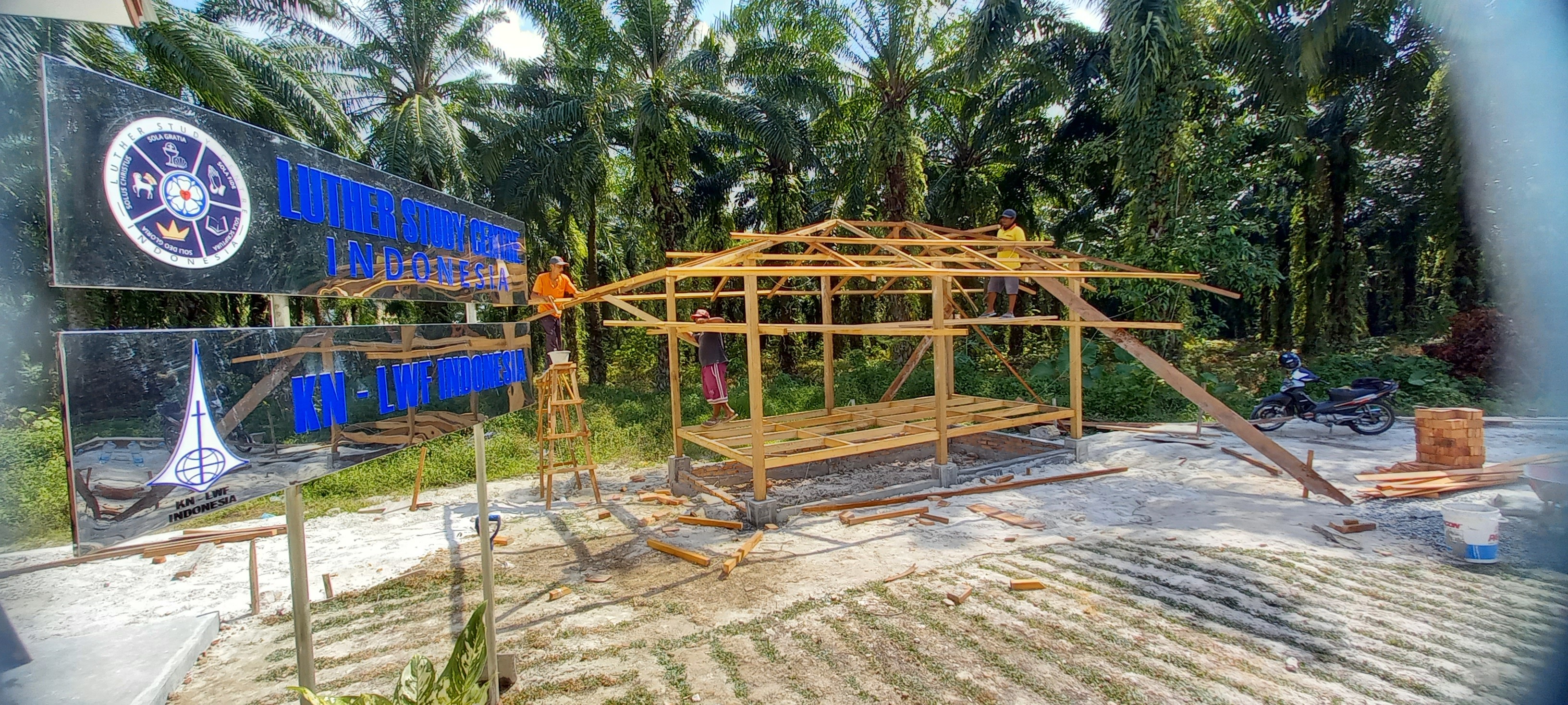Compilation of Climate Justice Advocacy
Good Practices of Local to Global Action
PROJECT DURATION
July to October 2021
BUDGET AND FUNDING
EUR 1,998, The Lutheran World Federation
SNAPSHOT
The initiative addressed adaptation, mitigation, and climate justice advocacy. Throughout the project, Indonesia's vulnerability to climate change was evident, with hydro-hazards and extreme weather events causing significant damage and loss of life. Driven by faith and spirituality, a city forest was established in Pematangsiantar, North Sumatra, Indonesia, initiated by the National Committee of Lutheran World Federation in Indonesia and support from the LWF
IMPLEMENTATION
National Committee of the Lutheran World Federation in Indonesia (KN-LWF Indonesia)
The project was extremely relevant within the context as it addressed adaptation, mitigation, and climate justice advocacy through the following activities:
1) the establishment of a climate hut for youth to learn about climate change;
2) theologically based education workshops on the climate and environment;
3) involvement of youth in landscaping and tree planting activities, transforming unfertile land into productive areas; and
4) impactful climate change advocacy campaigns through social media platforms.
The project achieved significant milestones in the pursuit of climate justice. Through the workshop, 70 Christian youths were empowered as advocates and campaigners for climate justice.
The LWF National Committee in Indonesia (KNLWF) selected and collaborated with one of the Member Churches youth, Nazareth Nababan, a theological student from Pematang Siantar, to lead this project.
The workshop equipped participants with a comprehensive understanding of climate and environmental issues, as well as essential campaigning skills.
A crucial aspect of the project was the development of the Lutheran City Forest (LCF) located in Pematangsiantar, Indonesia.
The team engaged in landscaping and tree planting activities, transforming 500 m2 of dry land into fertile soil. Although limited to 30 participants due to COVID-19 restrictions, the initiative made a notable impact on environmental conservation efforts.
"Driven by faith and spirituality, a city forest was established in Pematangsiantar, North Sumatra, Indonesia, initiated by the National Committee of The Lutheran World Federation in Indonesia and support from the LWF." (KNLWF)
Recognizing the power of digital platforms, the project launched an impactful climate change campaign on social media. With creative content messages, the campaign reached over 4,000 individuals across various social media platforms, amplifying the youth-led advocacy efforts.
To foster continued engagement, the KNLWF established a Lutheran Climate Post, a dedicated meeting point for discussions and learning on climate actions.
Overall, the project’s achievements stand as a testament to the dedication and passion of the KNLWF and its participants in advancing climate justice in the region.
The project has succeeded in making strides in creating a more sustainable and climate-resilient future, empowering the youth, transforming land, spreading awareness, and fostering dialogue within the impacted communities.
Context
Indonesia is highly vulnerable to the impacts of climate change, including extreme events such as floods and droughts, as well as long-term changes from sea level rise, shifts in rainfall patterns, and increasing temperatures.
Despite experiencing rapid economic growth and a reduction in poverty over the years (the poverty rate halving from 23% in 1999 to 9.5% in 2022), the country’s susceptibility is due to high population density in hazard-prone areas and heavy reliance on its natural resource base. As a result, Indonesia faces significant risks from projected climate variability and change.
The effects of climate change are expected to have severe consequences for Indonesia’s agricultural sector. Higher temperatures may reduce rice crop yields, and overall agricultural production faces multiple threats, impacting food security in the country.
In addition to agricultural challenges, climate change is likely to affect water availability, impacting disaster risk management, with urban development (particularly in coastal zones) and health and nutrition issues potentially exacerbating poverty and inequality.
With a ranking in the top third of countries in terms of climate risk, Indonesia is highly exposed to various types of flooding and extreme heat. As the climate continues to change, the intensity of these hazards is expected to grow. Without effective adaptation measures, the population’s exposure to these risks will also increase.
"The National Committee of The Lutheran World Federation of Indonesia firmly believes that churches in Indonesia, as part of global faith-based organizations, have a spiritual responsibility to God in ensuring the integration of creation through climate justice actions." (Click here to watch on YouTube).
The KNLWF also emphasizes that youth are crucial actors who should raise their voices and lead climate justice actions. With their digital reach, the participation of youth plays a pivotal role in enhancing Indonesia’s Nationally Determined Contributions (NDCs) to combat climate change.
Furthermore, this project aimed to encourage member churches of the KNLWF to actively participate and engage with local-national-global faith-based organizations in their efforts to address climate change. As part of this ambition Lutheran City Forest was born.
Community education, sensitization and capacity-strengthening
The project established a climate shelter, a small 24m2 house serving as a meeting place for youth to learn about climate change. The Climate Hut, also known as the Lutheran Climate Post, functions as a multifunctional hub, providing space for youths and stakeholders to receive comprehensive workshops and education from experts and environmental advocates, empowering them with knowledge and tools to become climate advocates.
Biodiversity conservation and restoration of ecosystems
The Lutheran City Forest exemplifies environmental conservation and reforestation efforts. Thanks to youth engaged in landscaping and tree planting activities, the project transformed barren land into fertile areas, restoring green spaces, and fostering ecological balance. Preceded by theologically-based educational workshops on climate and environment, the project emphasized community ownership and took practical steps to engage participants in empowering climate-related activities.
The Lutheran City Forest stands as a symbol of the community’s commitment to combat climate change and build climate-resilient ecosystems, contributing to climate environmental restoration efforts.
Advocacy
“For advocacy, we campaigned through social media, particularly through Facebook and Instagram. We did 20 social media campaigns and, as a result, we were able to reach 4,000 people in total.” (Berkatdo Saragih, Program Officer and Dedi Pardosi, Director of KNLWF).
The project conducted impactful climate change advocacy campaigns through social media platforms, particularly Facebook and Instagram. Utilizing creative content and intent-driven messages, these campaigns were initiated by youth, who promoted climate justice themes for over two weeks, spreading climate change awareness, and inspiring collective action.
The borderless nature of digital platforms enabled the project to transcend geographical boundaries, making climate advocacy accessible to a larger population, including rural regions.
The campaign’s success was measured by its reach and engagement, amplifying the project’s impact on climate awareness and fostering a sense of urgency for climate action.
Local to Global to Local Approach
The project followed the L2G2L approach, aligning its campaign with Indonesia’s Nationally Determined Contribution for 2030 and raising awareness and education about the impact that Indonesia uniquely faces.
“On April 4, 2021, the extreme weather caused by the Tropical Cyclone Seroja triggered natural disasters in a number of areas in East Nusa Tenggara and West Nusa Tenggara province in Indonesia. As a result, [there were] hundreds of casualties and properties fell. The death toll reached 169 people. This has never happened before. The extreme weather that triggered natural disasters was spread evenly in other areas of Indonesia, particularly in Sumatra and Java.” (Project Report, An Initiation in Encouraging the Spiritual Awareness of Lutheran Youth on Climate Justice through the Establishment of Lutheran City Forest).
The initiative effectively harnessed the contributions of Lutheran Christian youths, drawing on their faith-based perspectives to support the (NDC) target. It highlighted the pivotal role of the church in taking meaningful action to address climate change.
By empowering the youth and engaging local stakeholders in workshops and activities, the initiative aimed to foster a sense of ownership, responsibility, and collaboration. This collective effort served as a catalyst for building a proactive future, both for the communities involved and in addressing the challenges posed by climate change.
The directly targeted group consisted of 80 Lutheran Christian youths, including students from theological college (30 people), university (30 people), and high school (20 people). Nazareth Nababan, a theological student from Pematang Siantar, coordinated the project. The project indirectly reached a further 4,000 people through social media campaigns.
1.
Identification of the KNLWF as a nationally recognized advocate for climate justice.
2.
Through a comprehensive workshop, 70 Christian youth became empowered advocates and campaigners, equipped with a deeper understanding of climate issues and essential campaigning skills.
3.
The development of the Lutheran City Forest transformed 500m2 of dry land into fertile soil, making a notable contribution to environmental conservation efforts.
4.
The impactful social media campaign reached over 4,000 individuals, amplifying youth-led advocacy efforts, and raising climate change awareness.
5.
The establishment of the Lutheran Climate Post fostered ongoing engagement and strengthened the collective commitment to addressing climate challenges.
6.
The project’s success highlighted the pivotal role of youth in climate action and their ability to utilize digital platforms to lead impactful climate justice actions.


